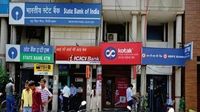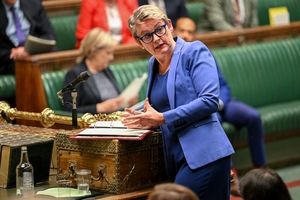The Reserve Bank of India (RBI) has announced a significant overhaul of its Priority Sector Lending (PSL) guidelines, which will take effect on April 1, 2025. This initiative aims to improve credit access across various crucial sectors, including agriculture, micro, small, and medium enterprises (MSMEs), renewable energy, housing, education, and social infrastructure. The revisions are designed to enhance financial inclusion and stimulate economic growth in areas that are often underserved.
One of the most notable changes is the enhancement of loan limits for education, social infrastructure, and housing. The loan limit for education has been raised to ₹25 lakh per individual, which now includes vocational courses. For social infrastructure projects, such as schools and drinking water facilities, borrowers can access loans up to ₹8 crore. Housing loans will also see a population-based classification, with limits set at ₹50 lakh for cities with a population of 50 lakh and above, ₹45 lakh for cities between 10 lakh and 50 lakh, and ₹35 lakh for smaller cities with populations below 10 lakh.
In a push for renewable energy, the RBI is offering loans up to ₹35 crore for renewable energy-based power generators and public utilities, with a limit of ₹10 lakh per individual household. This move underscores the RBI's commitment to promoting sustainable energy solutions and reducing reliance on fossil fuels.
The new guidelines also include revised PSL targets for Urban Cooperative Banks (UCBs), setting the total PSL target at 60% of the Adjusted Net Bank Credit (ANBC) or the Credit Equivalent of Off-Balance Sheet Exposures (CEOBSE). Specifically, micro enterprises are expected to account for 7.5% of ANBC, while advances to weaker sections must make up 12% of ANBC.
Perhaps most notably, the definition of 'weaker sections' has been expanded to include transgenders, alongside small and marginal farmers, distressed farmers indebted to non-institutional lenders, artisans, members of Self-Help Groups (SHGs) or Joint Liability Groups (JLGs), Scheduled Castes (SC) and Scheduled Tribes (ST), persons with disabilities, and minority communities as recognized by the Government of India. Furthermore, individual women beneficiaries can receive loans up to ₹2 lakh, although this limit does not apply to UCBs.
These revisions reflect the RBI's broader strategy to enhance financial accessibility for marginalized groups, thereby fostering inclusive economic development.
In parallel, new banking regulations set to roll out on the same date will further impact the financial landscape in India. Starting April 1, 2025, significant changes will be implemented concerning credit card perks, savings account rules, and the introduction of the Positive Pay System (PPS).
From May 1, 2025, ATM withdrawals will become more costly, with an additional ₹2 fee for each financial transaction exceeding the free limit. Non-financial transactions, such as balance inquiries, will also see an increase of ₹1, raising the cost of withdrawing cash from an ATM to ₹19 per transaction, up from ₹17.
Major banks, including the State Bank of India (SBI), Punjab National Bank, and Canara Bank, are updating their minimum balance requirements. These requirements will now vary based on whether an account is held in an urban, semi-urban, or rural area, with penalties imposed for failing to maintain the prescribed balance.
In a bid to enhance transaction security, the Positive Pay System will be introduced, requiring verification for check payments exceeding ₹5,000. Customers will need to confirm details such as the check number, date, payee name, and amount before processing, which aims to reduce fraud and errors.
Additionally, banks are launching advanced digital banking features, including AI-powered chatbots to assist customers and enhanced security measures like two-factor authentication and biometric verification to safeguard digital transactions.
Changes in interest rates are also on the horizon, with several banks revising their rates for savings accounts and fixed deposits. Interest on savings accounts will now depend on the account balance, encouraging customers to maintain higher balances for better returns.
Furthermore, major banks, including SBI and IDFC First Bank, are altering their co-branded Vistara credit cards, discontinuing benefits like ticket vouchers, renewal perks, and milestone rewards. Axis Bank will implement similar changes beginning April 18, 2025, affecting its Vistara credit cardholders.
As these changes loom, customers are urged to stay informed to avoid penalties and maximize their banking benefits. With the RBI's revised PSL guidelines and the new banking regulations, the financial landscape in India is poised for a transformation aimed at fostering inclusivity and enhancing security.





